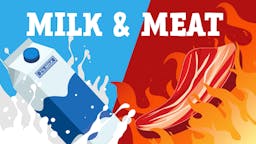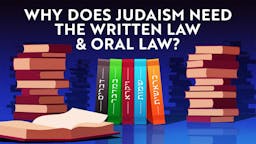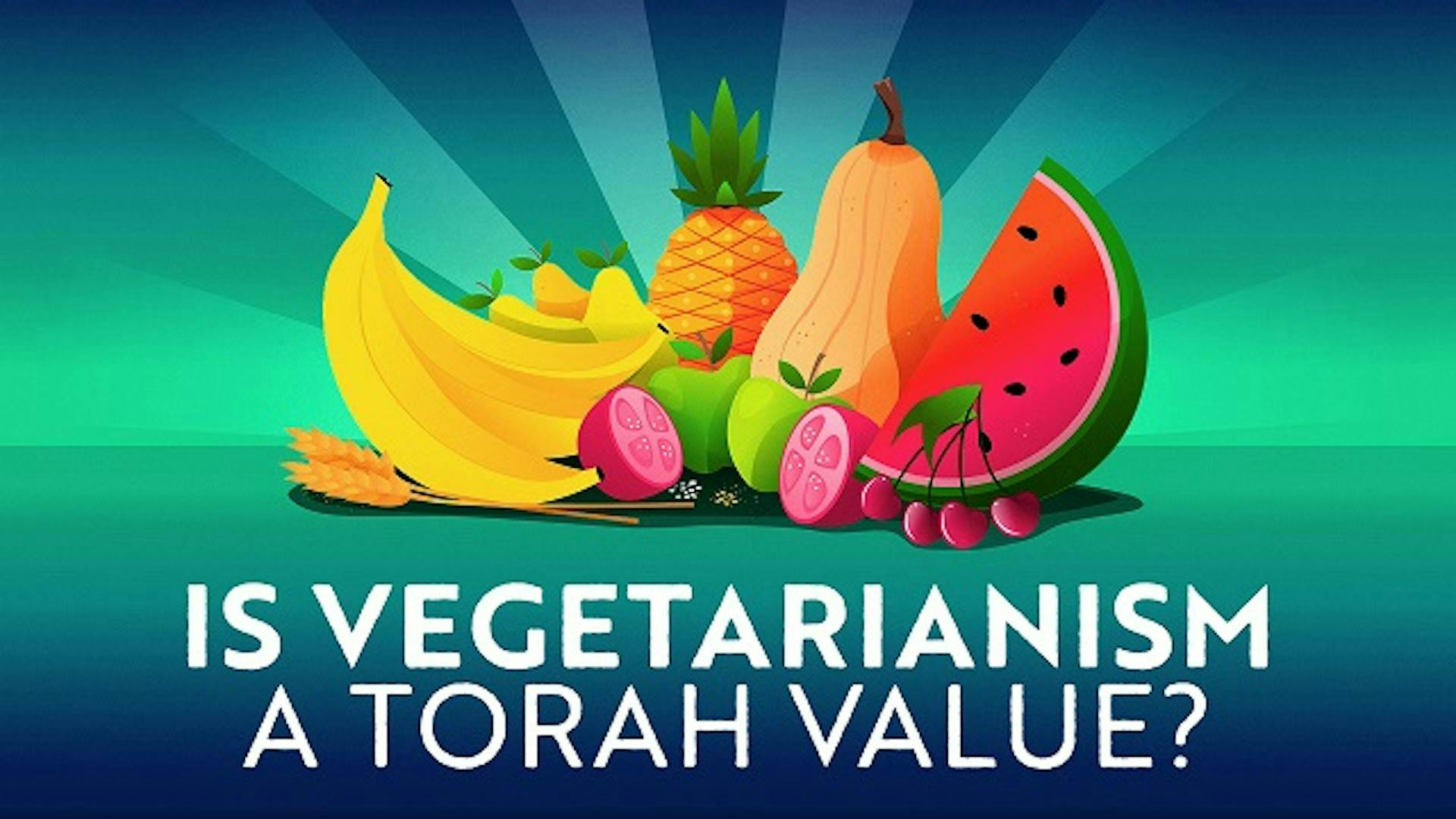What Does the Torah Say About Eating Meat?
Does the Torah Say I Should be Vegetarian? An Honest Approach.
By Ari Levisohn | 3 March 2024 | 7 Minute Read
Vegetarianism in the Torah
Is Eating Meat a Jewish Value?
Vegetarianism has never been more popular. Search interest for the word “vegetarian” is up tenfold over the last decade. While a lot of the conversation revolves around the environmental impact of meat consumption, or the current state of factory farming, the question has resurfaced: is it fundamentally moral to eat meat?
For religious Jews this question is even more focused: What does the Torah have to say about eating meat?
There are certainly arguments for both sides. Some point to the Torah’s laws about ethical treatment of animals (not putting them through unnecessary pain, letting them rest on Shabbat, etc.) and argue that the logical extension of that is to strive to avoid even eating them.
Others point to the fact that the Torah gives us permission to eat meat. If eating meat was immoral why would the Torah allow it? Moreover, the Torah, itself, places a huge centrality on animal sacrifices, and nowadays meat consumption has become not just a traditional, but a halachic (legal), component of our Shabbat and holiday celebrations.
A Textual Approach
There are some pretty compelling arguments on both sides. You may even know which side you are already on. But if we want to be truly, intellectually honest about this debate, we really have to turn to the text itself. What does the Torah actually say about eating meat?
A Troubling Verse
So what does the Torah say about this topic? Well, if one of the arguments for eating meat is, simply, that the Torah permits it, let’s turn to one of the several places in the Torah that gives us that permission. There is one detail that I believe sheds a lot of light on this argument.
The Torah doesn’t just give us free reign to eat animals however we want. First, we must slaughter the animal in a very precise way. That is something we are all probably familiar with. But there is another step that many people, who have never slaughtered an animal themselves, don’t know about. After slaughtering the animal, we are told to bury its blood. This process is called kisui hadam.
There is a particular verse in the law of kisui hadam that seems to weigh pretty heavily into our discussion on the ethics of eating meat. Here is the law of covering the blood as described in Leviticus:
וְשָׁפַךְ אֶת-דָּמוֹ וְכִסָּהוּ בֶּעָפָר.
He shall spill its blood and he shall cover it up with earth.
(Leviticus 17:13)
Now, I’ll be honest. I eat meat. But when I read this verse I can’t help but feel… uncomfortable. If I told you that the other day I “spilled someone's blood” and “covered it up,” what image comes to your mind? To me, that sounds like an episode of Law and Order! I sound like a murderer who is trying to hide the evidence! The Torah’s language feels like it is making me confront a terrible crime I have committed, which I am trying to brush under the rug.
Is That Really What it Means, Though?
Not so fast, you might be thinking. We can’t just apply our modern-day conceptions of what a crime scene looks like to this ancient ritual. Maybe this ritual could mean something totally different! Maybe it is about returning the blood to the earth where it came from, like a proper funeral, or something like that.
That’s a really good point! How are we supposed to know what the Torah really means when it gives us this law?
How Do We Figure Out What the Torah Really Means?
Wouldn’t it be great if there was another time the Torah talked about “spilling blood” and “covering it up” where the meaning was clear as day? Maybe, then, we could figure out what the Torah really means when it uses this language and apply it back to our verse. Well, it turns out that there is one other place in the Torah where we find exactly these phrases.
This is the exact language Joseph’s brothers use when they consider killing Joseph! Eventually they back off from that plan and resort to selling him, but take a look at the language used as the brothers are coming to that conclusion. First Reuben talks them down from direct murder (“spilling his blood”) and suggests leaving Joseph to die naturally in a pit:
וַיֹּאמֶר אֲלֵהֶם רְאוּבֵן אַל תִּשְׁפְּכוּ דָם הַשְׁלִיכוּ אֹתוֹ אֶל הַבּוֹר הַזֶּה
Reuben said to them, ‘don’t spill his blood. Through him into this pit.’
(Genesis 37:22)
Then Judah talks the brothers down a step further and suggests selling him rather than “covering up his blood.”
וַיֹּאמֶר יְהוּדָה אֶל אֶחָיו מַה בֶּצַע כִּי נַהֲרֹג אֶת אָחִינוּ וְכִסִּינוּ אֶת דָּמוֹ לְכוּ וְנִמְכְּרֶנּוּ לַיִּשְׁמְעֵאלִים
Judah said to his brothers, ‘what gain is there in killing our brother and covering up his blood? Let’s go and sell him to the Ishmaelites.’
(ibid. v. 26-27)
Do you see how similar that language is? This language of “spilling” and “covering” blood isn’t just murderous language. It is the language used when the brothers considered killing Joseph! It seems as if the Torah is telling us, sure, you are allowed to eat meat, but when you are slaughtering that animal you have to imagine that it is your brother you are murdering. The Torah permits us to eat meat, but seems to try to guilt us into not doing it, to change our minds like the brothers did.
This sure doesn’t bode well for eating meat…
A Case For Meat Consumption
So is that it for eating meat? Not necessarily. Beth Lesch does an amazing job unpacking the questions we asked in this video. But she goes further and explores some other sources as well, sources that suggest just the opposite: maybe it is actually really important to eat meat.
Watch now and get to the bottom of this debate.
More Videos on Vegetarianism

Milk & Meat In Jewish Law
Video • 13 min
The laws of Kashrut can seem so puzzling. There are restrictions on what you eat, how you eat it, and even how you slaughter the animals you’d like to eat! What makes all these laws so important? This Kashruth playlist takes a deeper look at several of the laws related to kosher eating, allowing you the opportunity to connect to God and kosher eating in a new and profound way.

Why Does Judaism Need The Written Law And Oral Law?
Video • 14 min
Is there a reason Judaism has two sets of laws? Isn't that confusing? Join Rabbi Fohrman in this deep dive, with your guide, Imu Shalev.
More Guides on Vegetarianism
Pages on Vegetarianism
What is Aleph Beta?
Aleph Beta is a unique kind of Torah library. Led by our founder, Rabbi David Fohrman, we are dedicated to high-level, textual Torah learning for adults that is intellectually and spiritually sophisticated, that enlivens your Jewish practice and helps you forge a deeper connection to God. Whether you’ve been learning in yeshiva for years or you’re just beginning your Torah journey, you’re sure to find something meaningful and surprising waiting for you here.
Browse our library of over 1,000 beautifully produced animated videos, podcasts, deep dive courses, and printable guides. Topics include the weekly parsha, Jewish holidays & fast days, laws & mitzvot, prayers, relationships, big philosophical ideas and more. Have something to say at the Shabbos table that will amaze your family and guests and bring deep meaning into their lives.


